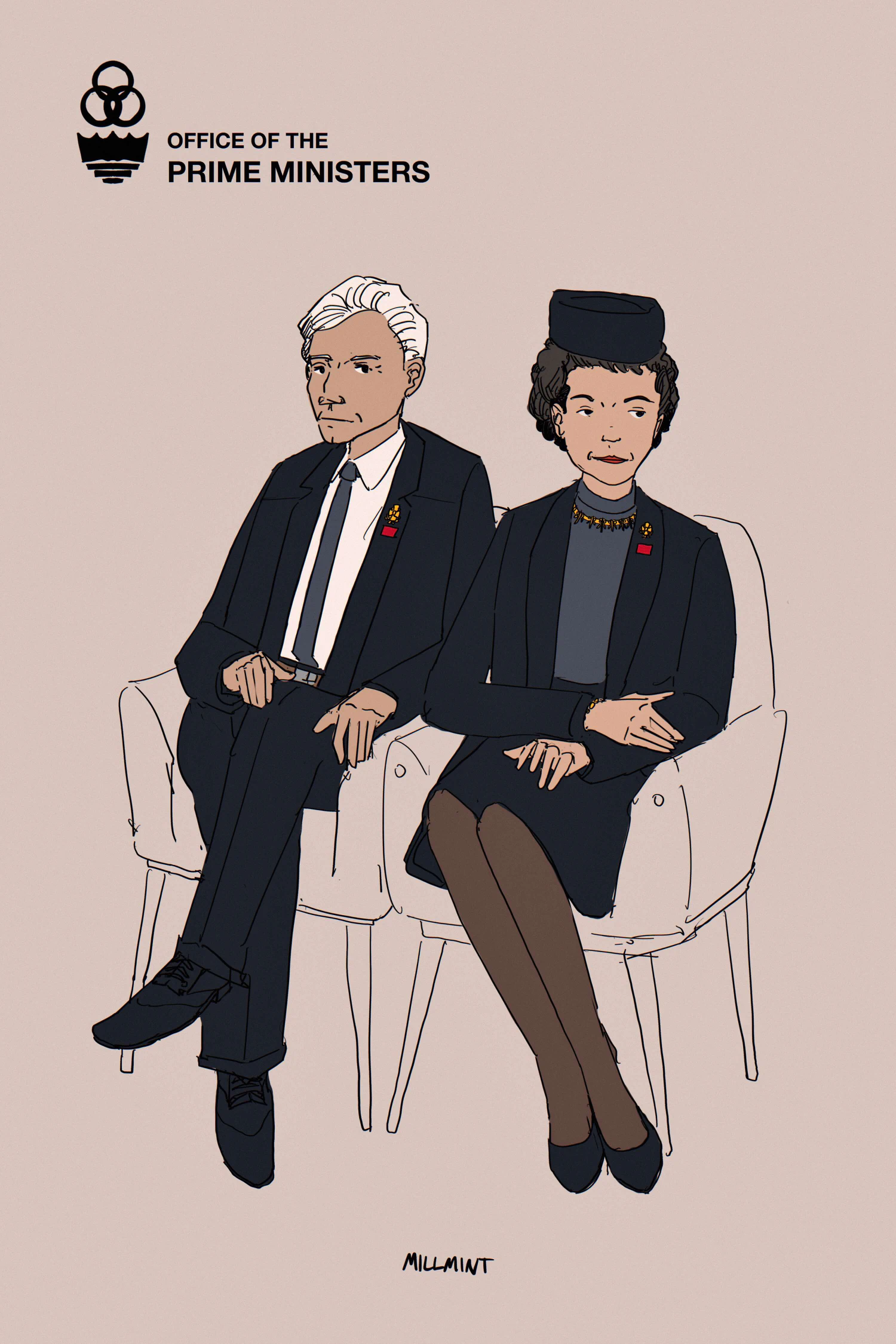NEW Story: Sunday Morning
The Prime Minister(s) of Vekllei

Vekllei is a nonpartisan democracy with two, equal heads of state – one man and one woman. Known as Crown Ministers in Vekllei, they generally acknowledge the title of Prime Minister overseas, as the head of Vekllei government and secretary-general of the Vekllei Cabinet. The position is a quirk of the postwar period, when radical alternatives to existing systems of government were being explored in the anarcho-feminist whirlwind of independence.
Although the title includes two seperate people, they represent a single office and so are expected to make agreeable decisions, if nothing else. This is a role of compromise and moderation, since each Prime Minister has the power to censure the other. Stalemates and infighting usually results in the sacking of the government by the Cabinet Secretary, since Vekllei people have little tolerance for partisan bickering in their public servants. The nonpartisan nature of Vekllei politics means the formation of government often sees unconventional members of parliament enter the cabinet, often from industry, the arts, or sciences. In this context, the ideal Prime Minister is well-groomed and patient by nature, and all great Vekllei PMs have been masters of compromise.
When Tzipora arrives in Vekllei in the early 2060s, the country is lead by Prime Ministers Raif Housk and Dalia Hospotet, pictured here. Traditionally, PMs divide responsibilities along their strengths as politicians. Dalia Hospotet, for example, is a master of statecraft and so meets regularly with foreign leaders to express the Vekllei position. Raif is an economist at the Ministry of Commerce, and his talents lie in exploiting his deep connections to Vekllei business. That is not to suggest the Prime Ministers operate independently – quite the opposite in fact. Decisions have to be made as in agreement, as a single office, and so the relationship of the PMs resembles a married couple, with definitive answers postponed until consort can be had. The election of Prime Ministers is a marriage of two people, in a civic sense.
Their most important function, as two people in a single role, is to represent their people and indicate, both to foreigners and themselves, the values of their society. Prime Ministership is an intimate and symbolic position, and their appearance internally and abroad is in some ways more like the king and queen of a monarchy than the public servants of a modern democracy. But that too represents Vekllei well, as a hybrid society of contradictory yet fascinating instincts, breaking down the historicism of society by insisting that the past is the future and the revolutionary is ordinary.